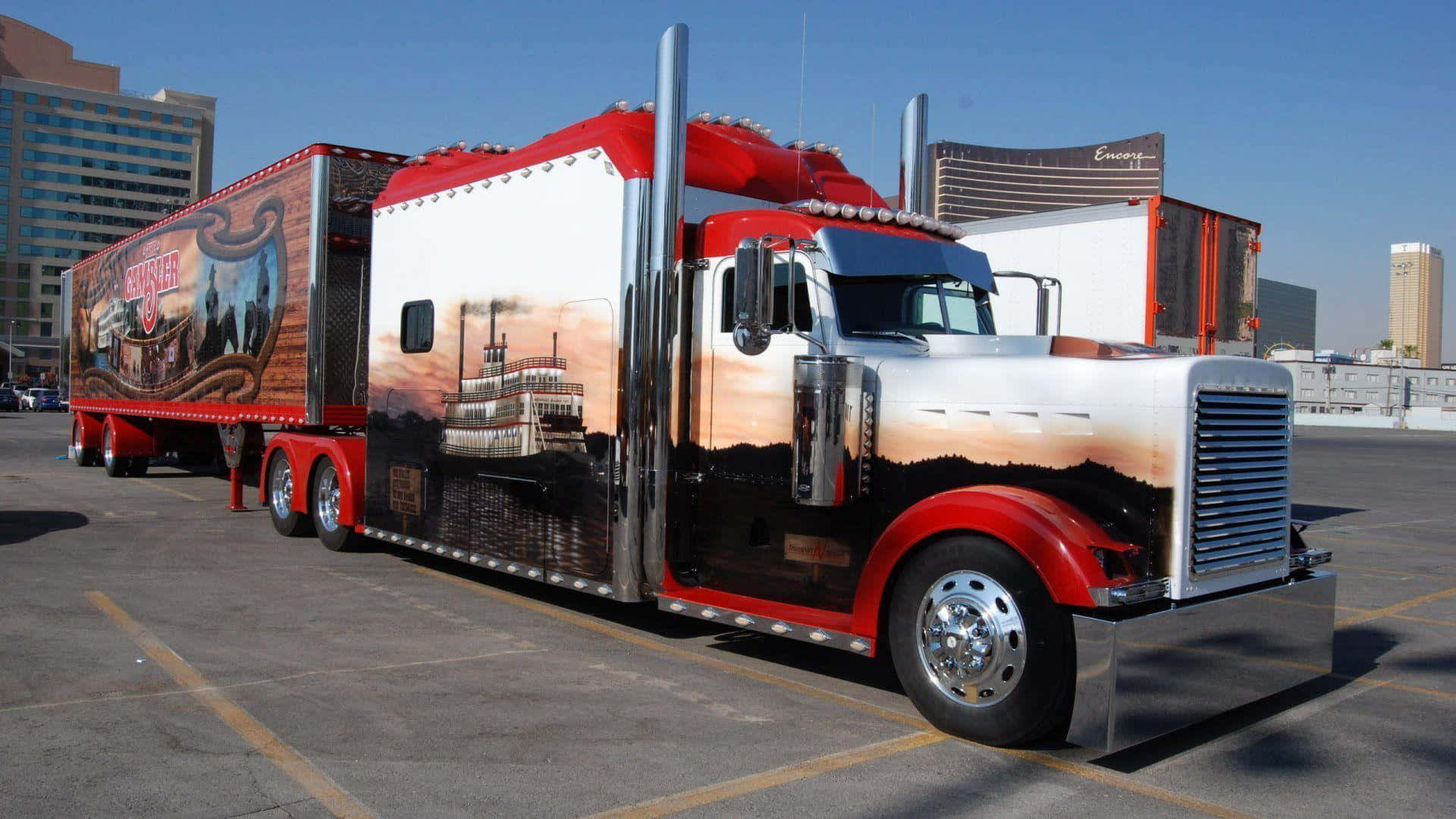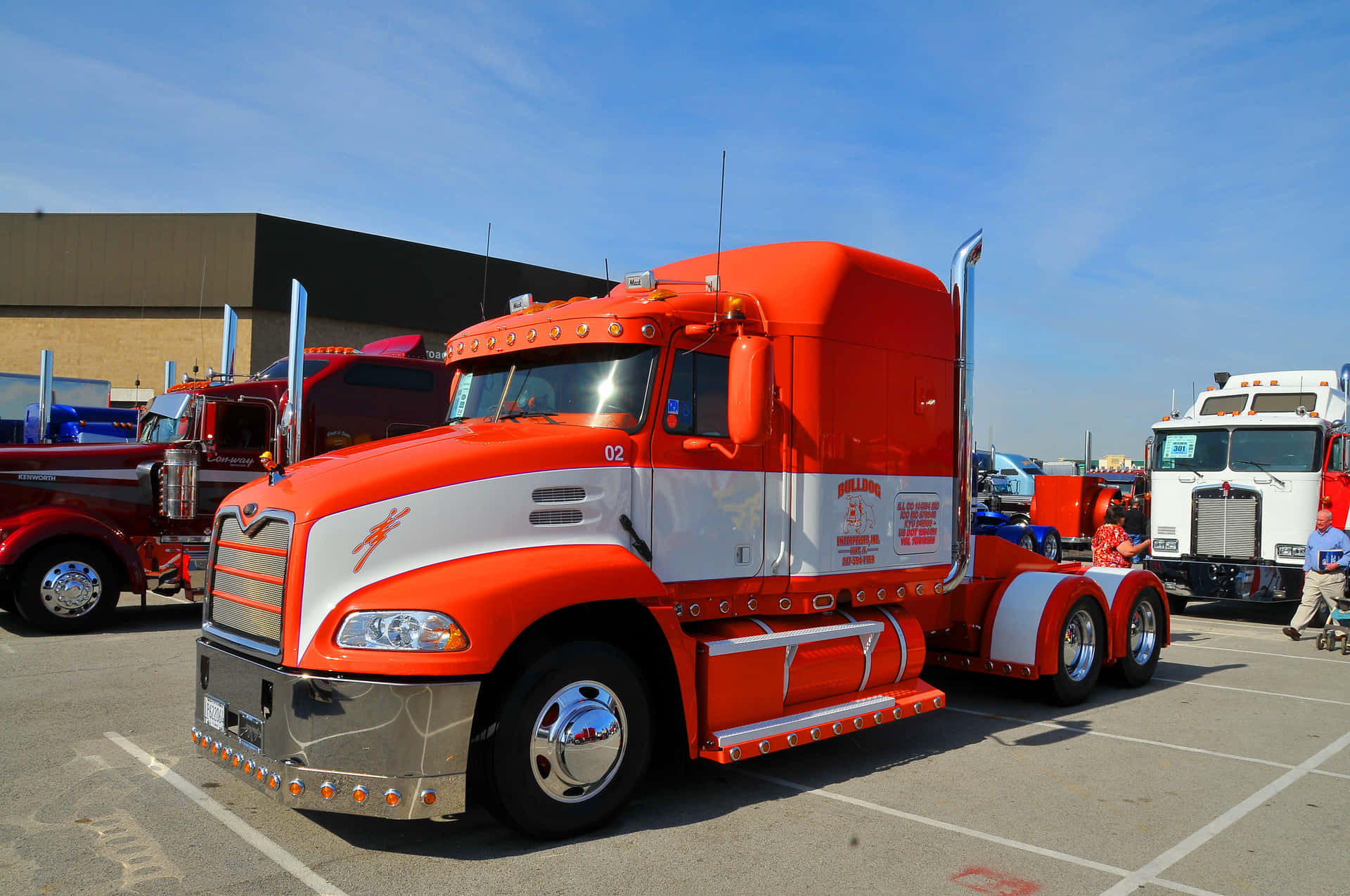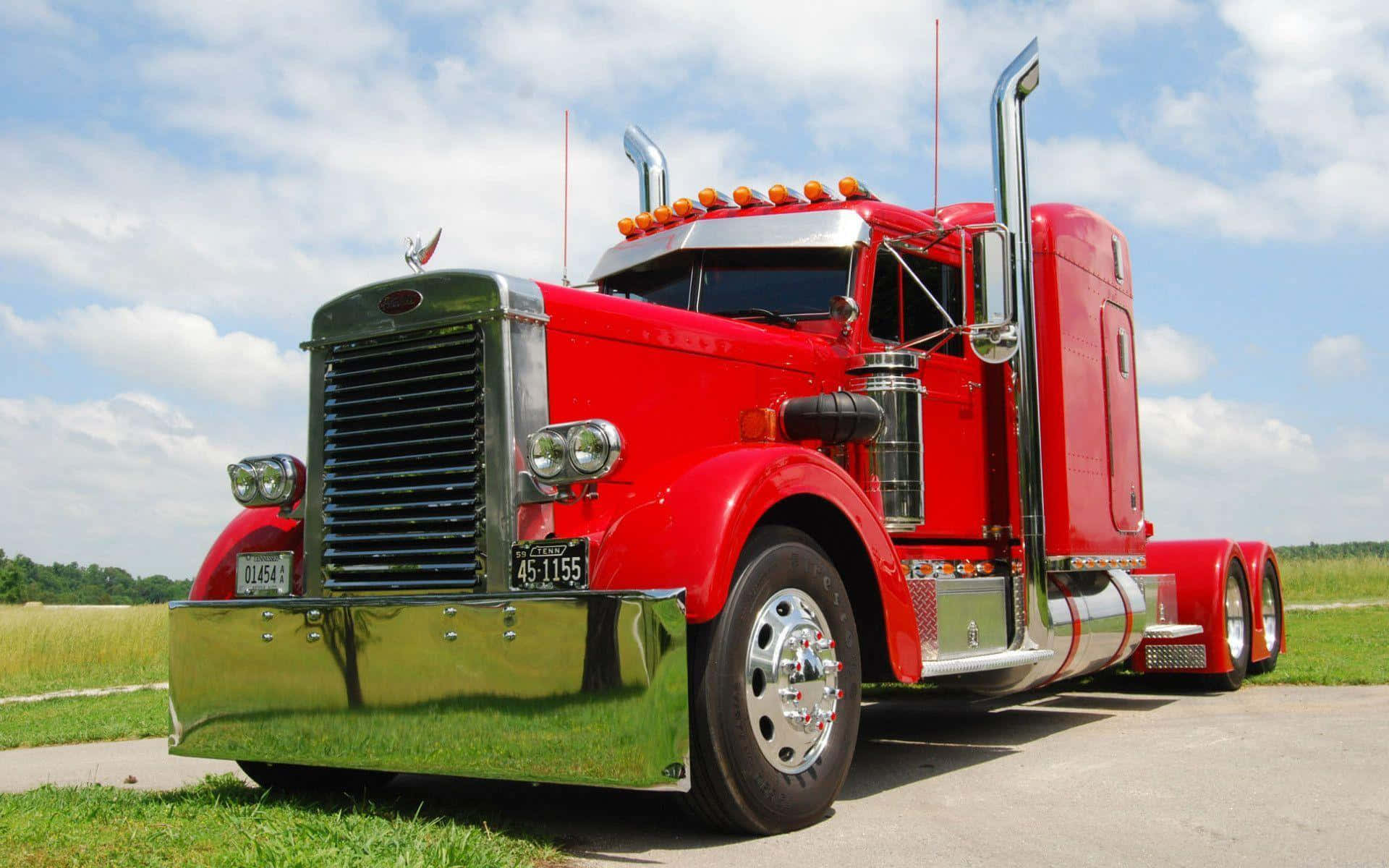Truck With Gooseneck Hitch For Rent: Your Ultimate Guide to Heavy-Duty Towing Solutions types.truckstrend.com
In the world of heavy hauling, a standard bumper-pull hitch often falls short. When you need to move substantial loads – be it a large RV, a flatbed trailer laden with construction equipment, livestock, or agricultural machinery – the stability, capacity, and maneuverability offered by a gooseneck hitch become indispensable. However, owning a dedicated truck equipped with this specialized towing system represents a significant investment, both in initial cost and ongoing maintenance. This is where the practical and cost-effective solution of renting a truck with a gooseneck hitch comes into play, providing businesses and individuals with the power they need, precisely when they need it, without the burden of ownership.
This comprehensive guide will delve into everything you need to know about renting a truck with a gooseneck hitch, helping you navigate the options, understand the benefits, and ensure a safe and successful towing experience.
Truck With Gooseneck Hitch For Rent: Your Ultimate Guide to Heavy-Duty Towing Solutions
What is a Gooseneck Hitch and Why Choose It?
A gooseneck hitch is a heavy-duty towing connection mounted in the bed of a pickup truck, typically over or slightly forward of the rear axle. Unlike a bumper-pull hitch that attaches to the rear frame, the gooseneck utilizes a ball-and-coupler mechanism similar to a fifth-wheel hitch but with a smaller, more versatile design. The trailer features a long "gooseneck" extension that arches up and over the truck’s tailgate, connecting to the ball in the truck bed.
Key Advantages of Gooseneck Hitches:
- Superior Stability: By positioning the hitch point over the rear axle, gooseneck setups significantly improve weight distribution, reducing sway and enhancing stability, especially at highway speeds and over uneven terrain.
- Higher Towing Capacity: Gooseneck hitches are designed to handle much heavier loads than conventional bumper-pull hitches, often rated for capacities ranging from 20,000 lbs to over 30,000 lbs.
- Improved Maneuverability: The pivot point over the axle allows for tighter turning radii, making it easier to navigate congested areas, driveways, and construction sites compared to bumper-pull trailers of similar size.
- Reduced Stress on Truck Frame: The weight is distributed directly onto the truck’s frame, rather than cantilevered off the bumper, minimizing strain on the vehicle.

Who Needs a Truck with a Gooseneck Hitch Rental?
Renting a gooseneck-equipped truck is a versatile solution catering to a wide array of users:
- Construction Companies: Hauling heavy machinery (skid steers, excavators, loaders), materials, and job site trailers.
- Farmers & Ranchers: Transporting livestock, hay, farm equipment, and implements between fields or to market.
- Landscapers: Moving large equipment, bulk materials, and specialized trailers.
- Heavy Equipment Rental Companies: Delivering and retrieving large rental items.
- Event Organizers: Transporting stages, sound equipment, temporary structures, or vendor booths.
- RV Enthusiasts (with Gooseneck RVs): Hauling large fifth-wheel style campers that utilize a gooseneck adapter.
- Individuals with One-Time Hauling Needs: Moving a large boat, a personal excavator, or assisting with a substantial move.
- Small Businesses: Avoiding the capital expenditure of purchasing a heavy-duty truck for occasional transport needs.


Benefits of Renting vs. Owning
The decision to rent rather than buy a truck with a gooseneck hitch offers compelling advantages:
- Cost-Effectiveness: Eliminate the high upfront purchase price, depreciation, interest on loans, and ongoing costs like insurance, registration, and routine maintenance.
- No Maintenance Headaches: Rental companies are responsible for vehicle upkeep, repairs, and ensuring the truck is road-ready and compliant.
- Access to Specific Equipment: Renting allows you to choose the precise truck size and towing capacity needed for each specific job, rather than being limited by a single owned vehicle.
- Flexibility: Rent only when you need it – for a day, a week, or a month – without the truck sitting idle and costing money when not in use.
- Reduced Storage Needs: No need to find space to park a large, specialized truck when it’s not in operation.
- Tax Advantages: Rental costs can often be expensed as an operating cost for businesses.
Types of Trucks Available for Rent with Gooseneck Hitches
Rental fleets typically offer heavy-duty pickup trucks, primarily 3/4-ton (2500/250 series) and 1-ton (3500/350 series) models, often in dually (dual rear wheel) configurations for maximum stability and towing capacity.
- 3/4-Ton (e.g., Ford F-250, Ram 2500, Chevy Silverado 2500HD): Suitable for moderate gooseneck loads, typically up to 15,000-20,000 lbs. Good for smaller livestock trailers, car haulers, or lighter equipment.
- 1-Ton Single Rear Wheel (SRW) (e.g., Ford F-350 SRW, Ram 3500 SRW, Chevy Silverado 3500HD SRW): Offers increased capacity over 3/4-ton, usually up to 20,000-25,000 lbs. A good balance of capacity and maneuverability for some users.
- 1-Ton Dually (DRW) (e.g., Ford F-350/450 DRW, Ram 3500/4500 DRW, Chevy Silverado 3500HD DRW): The preferred choice for maximum gooseneck towing. With four tires on the rear axle, they provide unmatched stability and often boast capacities exceeding 30,000 lbs. Ideal for large equipment, multi-car trailers, or substantial livestock haulers.
All rented trucks should come equipped with integrated trailer brake controllers and proper trailer light connections.
How to Rent a Truck with a Gooseneck Hitch: A Step-by-Step Guide
- Assess Your Needs: Determine the exact weight of your trailer and its cargo (Gross Vehicle Weight Rating – GVWR), the required tongue weight (pin weight for gooseneck), and the type of trailer (flatbed, enclosed, livestock, etc.). This will dictate the minimum towing capacity and truck type you need.
- Find Reputable Rental Companies: Search for specialized heavy-duty truck rental companies, equipment rental outfits, or even some larger national truck rental chains that offer gooseneck-equipped vehicles. Read reviews.
- Inquire and Get Quotes: Contact several companies, providing them with your specific towing needs, rental duration, and desired pickup/drop-off locations. Ask about their available truck models, towing capacities, and rental terms.
- Understand Requirements: Confirm driver’s license requirements (CDL vs. non-CDL based on GVWR/GCWR), age restrictions, and insurance policies.
- Book Your Rental: Once you’ve selected a company and truck, confirm your reservation, understanding all costs, including mileage fees, fuel policies, and any potential surcharges.
- Pre-Trip Inspection: Before leaving the lot, thoroughly inspect the truck for existing damage, check tire pressure (including spare), fluid levels, lights, and ensure the gooseneck ball is securely installed and in good condition. Test the trailer brake controller.
- Connect and Test: Properly hitch your trailer, ensuring the safety chains are crossed and the breakaway cable is attached. Connect the electrical umbilical cord and verify all trailer lights (running, brake, turn signals) are working. Test the trailer brakes.
- Understand the Contract: Read the rental agreement carefully, paying attention to fuel policies, return conditions, damage clauses, and emergency procedures.
Important Considerations Before Renting
- Driver’s License: For combination vehicles (truck + trailer) with a Gross Combination Weight Rating (GCWR) over 26,000 lbs, a Commercial Driver’s License (CDL) may be required. However, many heavy-duty pickup and gooseneck trailer combinations fall under this threshold, allowing them to be driven with a standard Class A or B non-commercial license (depending on state regulations and individual trailer GVWR). Always verify your specific state’s requirements and the GCWR of your setup.
- Insurance: Your personal or business auto insurance policy may not cover rented commercial vehicles or the specific risks associated with heavy towing. Rental companies offer additional insurance, or you may need a separate binder from your commercial insurance provider. Do not assume you are covered.
- Towing Capacity Matching: Never exceed the Gross Combination Weight Rating (GCWR) of the truck, the Gross Vehicle Weight Rating (GVWR) of the trailer, or the Gross Axle Weight Rating (GAWR) of either. Ensure the truck’s gooseneck hitch capacity matches or exceeds your trailer’s loaded weight.
- Trailer Compatibility: Ensure your trailer has the correct gooseneck coupler type (e.g., 2 5/16" ball) that matches the ball on the rental truck.
- Pre-Trip Safety Check: Beyond the initial inspection, perform a full pre-trip inspection of both the truck and trailer before every departure, checking tires, lights, brakes, hitch connection, and load security.
- Weight Distribution: Proper load distribution on the trailer is crucial for stability. Too much weight forward or backward can lead to dangerous sway or excessive stress on the truck. Aim for 20-25% of the trailer’s loaded weight to be on the gooseneck ball.
Tips for a Successful Gooseneck Towing Experience
- Practice: If you’re new to gooseneck towing, practice turning and especially backing up in a safe, open area before hitting the road. Gooseneck trailers pivot differently than bumper-pulls.
- Load Distribution: Always load your trailer correctly, ensuring the heaviest items are centered over the trailer axles and the correct amount of weight is on the gooseneck ball.
- Braking: Allow significantly more stopping distance when towing heavy loads. Anticipate stops and use the trailer brake controller smoothly.
- Turning: Make wider turns than you would without a trailer, especially right turns, to avoid hitting curbs or obstacles with the trailer wheels.
- Speed: Adhere to posted speed limits for towing and adjust speed for road conditions, wind, and traffic. Heavy loads require lower speeds.
- Mirrors: Utilize extended towing mirrors to maintain clear visibility of your trailer and surrounding traffic.
- Regular Checks: During long trips, stop periodically to check tire pressure (truck and trailer), wheel hubs for excessive heat, and the security of your load and hitch connection.
Potential Challenges and Solutions
- Availability: Specialized gooseneck trucks may not be as readily available as standard rental trucks. Book well in advance, especially during peak seasons.
- Cost: Rental costs can add up for long durations. Compare daily, weekly, and monthly rates.
- Hidden Fees: Clarify all charges upfront, including mileage limits, fuel surcharges, cleaning fees, and late return penalties.
- Mechanical Issues: While rare with reputable companies, mechanical breakdowns can happen. Ensure the rental agreement outlines roadside assistance and replacement vehicle policies.
- Insurance Complexities: Don’t assume. Always confirm insurance coverage for the rental truck and your cargo with your personal/business insurer and the rental company.
Pricing Table for Truck With Gooseneck Hitch For Rent (Estimates)
Please note: Prices are highly variable based on location, truck availability, demand, rental company, and specific truck model/capacity. These are estimates for reference only. Always get a detailed quote.
| Truck Type / Capacity (Gooseneck) | Daily Rate (24 hrs) | Weekly Rate (7 days) | Monthly Rate (30 days) | Mileage Included (Daily) | Additional Mileage Cost |
|---|---|---|---|---|---|
| 3/4-Ton (2500/250) | $250 – $400 | $1,000 – $1,800 | $3,000 – $5,500 | 100 – 150 miles | $0.35 – $0.75 / mile |
| Typical Towing: 15,000-20,000 lbs | |||||
| 1-Ton SRW (3500/350) | $300 – $450 | $1,200 – $2,000 | $3,500 – $6,000 | 100 – 150 miles | $0.40 – $0.80 / mile |
| Typical Towing: 20,000-25,000 lbs | |||||
| 1-Ton Dually (3500/350/450) | $350 – $550 | $1,500 – $2,500 | $4,500 – $8,000 | 100 – 150 miles | $0.45 – $0.90 / mile |
| Typical Towing: 25,000-35,000+ lbs |
Additional Potential Costs:
- Insurance Waivers/Coverage: $30 – $80 per day
- Fuel Policy: Return full or pay premium for company refueling.
- Cleaning Fees: If returned excessively dirty.
- Late Return Fees: Hourly or daily penalties.
- One-Way Rental Fees: Substantial additional charges if not returning to the original location.
- Optional Equipment: Ball adapters, hitches (if not standard), etc.
Frequently Asked Questions (FAQ)
Q1: Do I need a CDL to rent a truck with a gooseneck hitch?
A1: Not necessarily. In many states, if the Gross Combination Weight Rating (GCWR) of the truck and trailer combined is under 26,001 lbs, a standard Class D (non-commercial) driver’s license is sufficient. However, if either the truck or the trailer individually has a GVWR over 26,000 lbs, or the GCWR exceeds 26,000 lbs, a CDL (often Class A) may be required. Always check your specific state’s DMV regulations and the ratings of the truck and trailer you intend to use.
Q2: What’s the difference between a gooseneck and a fifth-wheel hitch?
A2: Both are mounted in the truck bed over the rear axle. A fifth-wheel uses a large, flat plate (the "fifth wheel") and a kingpin connection, commonly found on large RVs and semi-trailers. A gooseneck uses a smaller ball-and-coupler system, similar to a traditional bumper-pull but scaled up and mounted in the bed. Goosenecks are often preferred for utility, flatbed, and livestock trailers due to their simpler, lower-profile ball connection when the truck bed is needed for other uses.
Q3: Can I use my own gooseneck ball with a rental truck?
A3: Most rental trucks will come with a standard 2 5/16" gooseneck ball installed. It’s best to confirm with the rental company. Using your own ball might be possible if it fits their system, but ensure it’s rated for the load and securely installed according to their policies.
Q4: What if my trailer has a different hitch type (e.g., bumper pull)?
A4: A truck rented with a gooseneck hitch typically only has the gooseneck ball in the bed. If you need to tow a bumper-pull trailer, you would need a truck equipped with a receiver hitch at the rear. Some rental companies might offer trucks with both, but it’s less common for specialized heavy-duty gooseneck rentals. You would need to specify your trailer type when booking.
Q5: What kind of insurance do I need when renting a gooseneck truck?
A5: Your personal auto insurance may not cover commercial rentals or the specific risks of heavy towing. Rental companies offer supplemental liability insurance and physical damage waivers (Loss Damage Waiver – LDW). It’s crucial to review these options and/or consult with your own insurance provider (personal or commercial) to ensure you have adequate coverage for the truck, the trailer, and your cargo, as well as liability for any accidents.
Q6: How do I know the correct towing capacity I need?
A6: You need to know the Gross Vehicle Weight Rating (GVWR) of your loaded trailer. This is the maximum weight the trailer is designed to carry, including its own weight and the cargo. Ensure the rental truck’s maximum gooseneck towing capacity exceeds your trailer’s loaded GVWR. Also, consider the truck’s Gross Combination Weight Rating (GCWR), which is the maximum combined weight of the truck, trailer, and all their contents.
Conclusion
Renting a truck with a gooseneck hitch offers a powerful, flexible, and economical solution for heavy-duty towing needs without the substantial commitment of ownership. Whether you’re a contractor moving equipment, a farmer transporting livestock, or an individual with a one-time large hauling project, access to these specialized vehicles can be a game-changer. By understanding the benefits, navigating the rental process, and prioritizing safety, you can confidently tackle even the most demanding towing tasks, ensuring your valuable cargo arrives securely and efficiently at its destination. Plan ahead, communicate clearly with rental providers, and always put safety first to maximize the success of your gooseneck towing experience.
